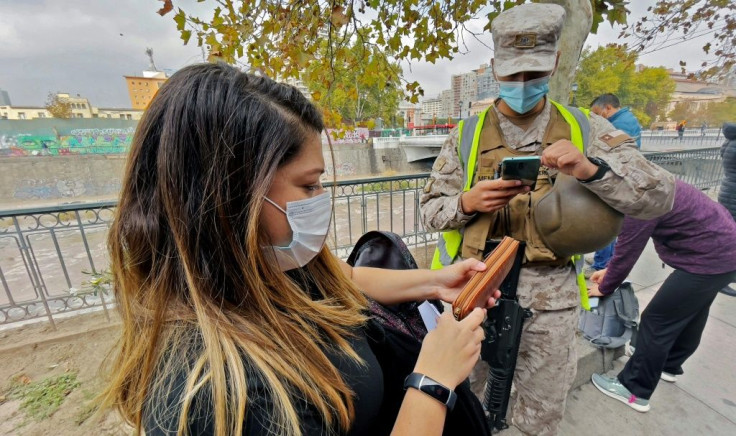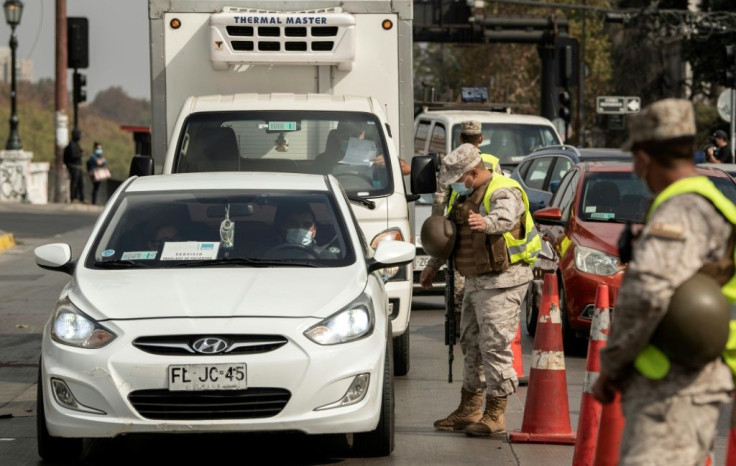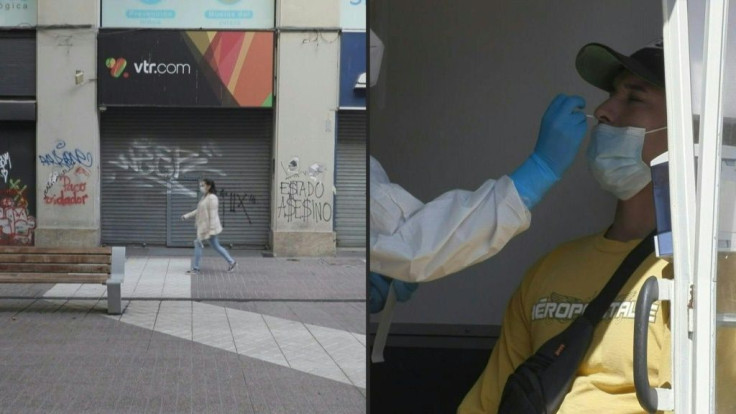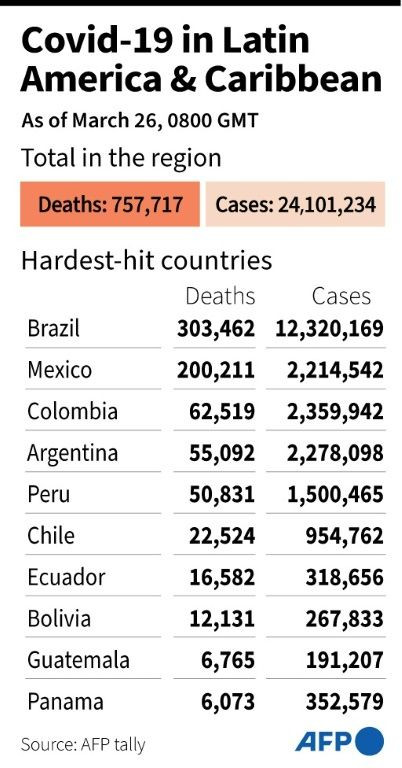Vaccine Leader Chile Wrestles With Rising Covid Infection Rate
Chile is a world leader in its coronavirus vaccination program and has already given at least one dose to almost a third of its population.
By Thursday the narrow South American nation, hemmed in by the Andes mountains and the Pacific ocean, had given more than six million people a single dose and 3.1 million both doses, including most over-70s.
And yet that same day, the government put more than 80 percent of the country's 19 million people in lockdown.

With new virus variants, believed to be more contagious, spreading across the continent, cases have been soaring in Chile despite its vaccination drive.
On Thursday it passed 7,000 new cases in the previous 24 hours: the second highest daily figure recorded.
"They are phenomena that run on totally different tracks," Darwin Acuna, the president of Chile's society of intensive medicine, told AFP about the seeming disconnect between high vaccination and contagion rates.
President Sebastian Pinera has urged the country to make "a last effort" and authorities expect the vaccination push to start bearing fruit next month.

Health Minister Enrique Paris said the lockdown "is tough but necessary," particularly in the Santiago metropolitan area -- the most populous in Chile.
The country has recorded more than 950,000 infections and over 22,500 deaths from Covid.

Chile began vaccinating health care workers on December 24 and from February 3 it started with the general population, initially the over 90s.
But a general relaxation of attitudes in the country due to the vaccination campaign and summer holidays, as well as the arrival of new virus variants, pushed a new wave of infection.
"You cannot yet see the effect of the vaccine on the most at-risk people, because for the most at-risk people they have only just had the second dose," said Acuna.
He expects to see "a real effect on the requirement of ICU beds for the most at-risk people" in mid April.

Health care authorities say they have noticed a difference in the identity of those occupying ICU beds since the first wave of the pandemic: patients are younger and sicker.
"It seems to be more aggressive than last year. There are patients who go straight to ICU" and on oxygen, Hector Ugarte, chief doctor at the adult critical patient unit in a hospital in the coastal city Coquimbo, told AFP.
The ages of those needing hospital treatment has fallen "enormously," said the ministry of health -- because the young "haven't been careful."
On Thursday, authorities said they had discovered 45 cases of the Brazilian variant of the novel coronavirus, having already detected the British variant in February.
ICU beds are running at 95 percent occupancy, even in places like Coquimbo, 460 kilometers to the north of Santiago.
Before March 2020 it had eight ICU beds, but there are now 38 and this week 46 people required hospital treatment for Covid-19.
The government's goal is to immunize 15 million people by June 30, achieving coveted "herd immunity," when a sufficiently large proportion of the population is resistant to a pathogen that it has nowhere to spread.
By Thursday, authorities had given almost 6.1 million people a first dose of either the Chinese CoronaVac or Pfizer shots.
Teachers, firefighters, the chronically ill, journalists, public sector workers, pharmacy staff and telecommunications employees have already been given a first dose. Most health care workers and old people have had two.
Despite the high infection rates, there is much optimism.
At a retirement home in the south of Chile where residents and personnel received a first vaccine dose in the opening week of February, a subsequent outbreak of coronavirus in the facility infected 70 people. The only death was a resident who hadn't been vaccinated.
There is much hope, too, in hospitals.
"Now, with 80 percent of the staff having been fully vaccinated for a few weeks, there is one!" he added, calling it "the first great demonstration" of the vaccine's impact.
© Copyright AFP 2024. All rights reserved.




















